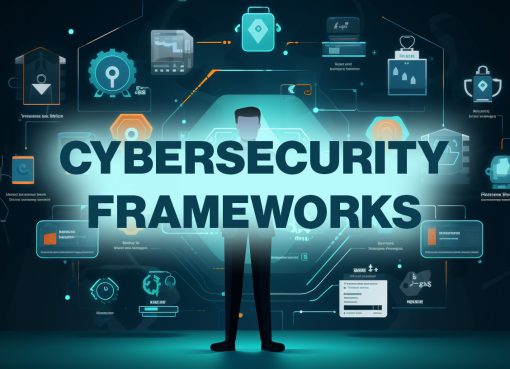Information Security: Safeguarding Your Digital Assets

In today’s interconnected world, where information is constantly being shared and accessed online, ensuring the security of that information has become more critical than ever. Information security encompasses a wide range of practices and technologies designed to protect digital data from unauthorized access, use, disclosure, disruption, modification, or destruction. Let’s delve into the importance of information security and how individuals and businesses can safeguard their digital assets.
Importance of Information Security
Information security is essential for protecting sensitive data, maintaining privacy, and preventing unauthorized access to digital assets. Whether it’s personal information, financial data, or intellectual property, ensuring the confidentiality, integrity, and availability of information is paramount.
Definition of Information Security
Information security, also known as cybersecurity or IT security, refers to the practice of protecting digital information from unauthorized access, use, disclosure, disruption, modification, or destruction. It involves implementing various measures and technologies to safeguard data from potential threats and vulnerabilities.
Common Threats to Information Security
Cyber Attacks
Cyber attacks, such as hacking, malware, and denial-of-service (DoS) attacks, pose significant threats to information security. Hackers exploit vulnerabilities in software and networks to gain unauthorized access to sensitive information or disrupt operations.
Malware
Malware, including viruses, worms, Trojans, and ransomware, can infect computers and networks, causing data breaches, financial loss, and system damage. Malicious software is often distributed through phishing emails, malicious websites, or infected files.
Phishing
Phishing is a type of social engineering attack in which cybercriminals attempt to deceive individuals into revealing sensitive information, such as passwords, credit card numbers, or social security numbers. Phishing emails often mimic legitimate organizations and lure victims into clicking on malicious links or downloading malicious attachments.
Principles of Information Security
Confidentiality
Confidentiality ensures that sensitive information is only accessible to authorized individuals or entities. Measures such as encryption, access controls, and data classification help protect data from unauthorized disclosure.
Integrity
Integrity ensures that data remains accurate, complete, and unaltered during storage, transmission, and processing. Techniques such as data validation, checksums, and digital signatures help detect and prevent unauthorized modifications to data.
Availability
Availability ensures that information is accessible and usable when needed by authorized users. Measures such as redundancy, backup, and disaster recovery planning help ensure continuous access to critical data and services.
Best Practices for Information Security
Strong Password Management
Implementing strong password policies, such as requiring complex passwords and enforcing regular password changes, helps prevent unauthorized access to accounts and systems.
Regular Software Updates
Keeping software, operating systems, and applications up to date with the latest security patches and updates helps mitigate vulnerabilities and reduce the risk of exploitation by cyber attackers.
Employee Training
Educating employees about information security best practices, such as recognizing phishing attempts, securing devices, and safeguarding sensitive information, helps create a culture of security awareness within the organization.
Information Security Technologies
Firewalls
Firewalls are network security devices that monitor and control incoming and outgoing traffic based on predetermined security rules. They help prevent unauthorized access to networks and block malicious traffic from entering or leaving the network.
Antivirus Software
Antivirus software detects, prevents, and removes malware infections from computers and networks. It scans files and processes for known malware signatures and behaviours, helping protect against viruses, worms, Trojans, and other types of malicious software.
Encryption
Encryption transforms data into an unreadable format using cryptographic algorithms, making it unintelligible to unauthorized individuals or entities. It helps protect data confidentiality during storage, transmission, and processing.
Compliance and Regulations
GDPR
The General Data Protection Regulation (GDPR) is a comprehensive data protection regulation that governs the processing of personal data of individuals within the European Union (EU) and the European Economic Area (EEA). It imposes strict requirements on organizations regarding data protection, privacy, and security.
HIPAA
The Health Insurance Portability and Accountability Act (HIPAA) is a federal law that regulates the privacy and security of protected health information (PHI) in the healthcare industry. It sets standards for the secure handling and transmission of PHI to ensure patient confidentiality and privacy.
PCI DSS
The Payment Card Industry Data Security Standard (PCI DSS) is a set of security standards designed to protect payment card data during storage, transmission, and processing. It applies to organizations that handle credit card transactions and requires compliance with various security measures and controls.
Information Security in the Workplace
Remote Work Considerations
With the rise of remote work, organizations must implement security measures to protect sensitive data accessed from remote locations. This includes using secure VPNs, multi-factor authentication, and encrypted communication channels.
Bring Your Device (BYOD) Policies
BYOD policies allow employees to use their devices, such as smartphones, tablets, and laptops, for work purposes. Organizations must establish clear policies and security controls to mitigate the risks associated with BYOD, such as data breaches and device security vulnerabilities.
Importance of Information Security in Businesses
Protecting Sensitive Data
Businesses store and process vast amounts of sensitive data, including customer information, financial records, and intellectual property. Information helps protect this data from unauthorized access, theft, or misuse.
Maintaining Customer Trust
Ensuring the security and privacy of customer data is crucial for maintaining trust and credibility with customers. A data breach or security incident can damage a company’s reputation and lead to financial and legal consequences.
Conclusion
In conclusion, information security is a critical aspect of modern-day business operations, encompassing various practices, technologies, and regulations aimed at protecting digital assets from unauthorized access, use, and disclosure. By implementing robust security measures and fostering a culture of security awareness, organizations can mitigate risks, safeguard sensitive data, and maintain customer trust in an increasingly interconnected world.



Leave a Comment